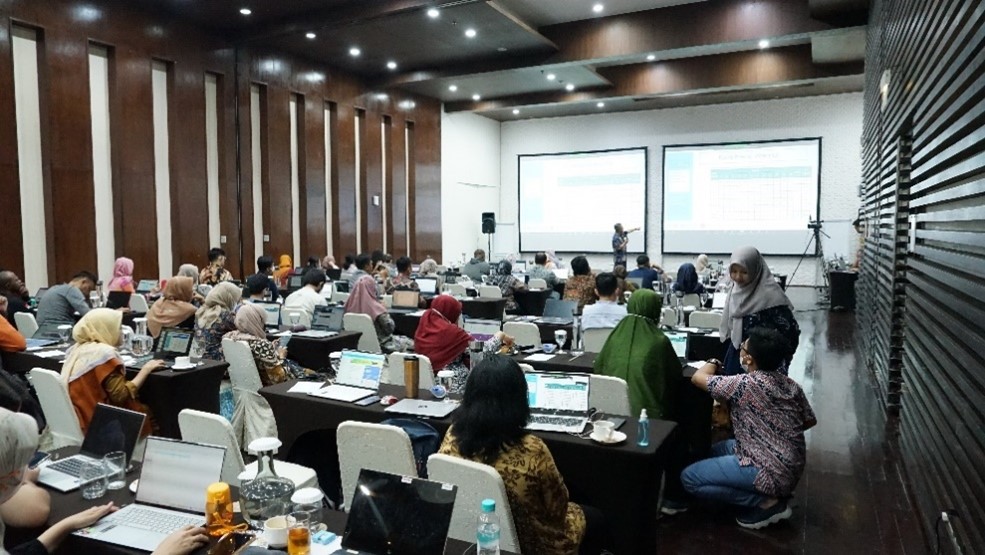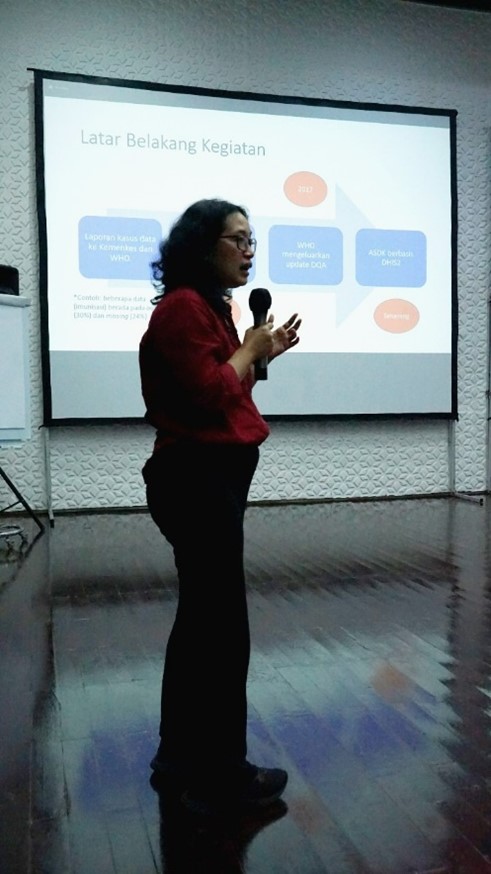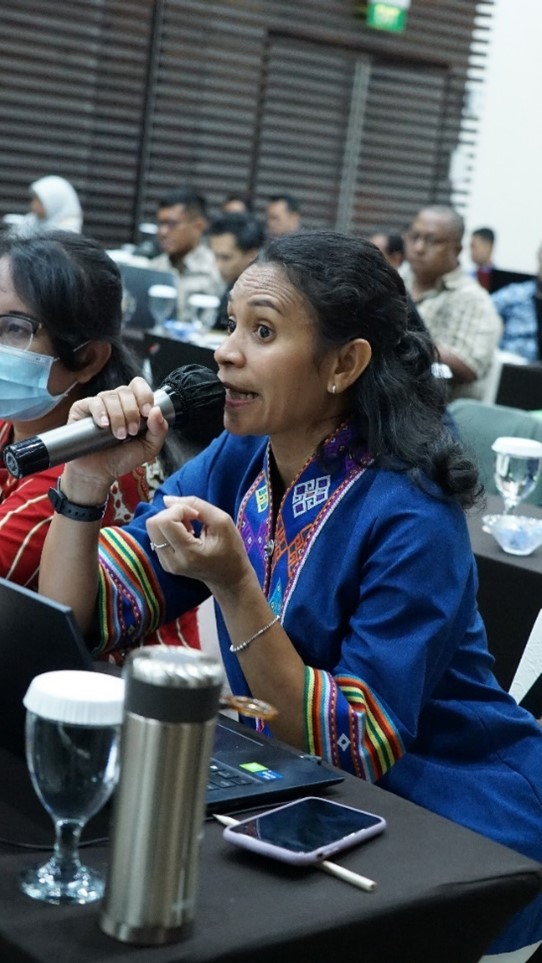High-quality data are crucial for tracking progress towards national health targets and the Sustainable Development Goals (SDGs). Timely, reliable, and actionable data play a vital role in planning effective interventions to enhancing population health and responding to health emergencies like COVID-19.
Indonesia's decentralized health information system at the subnational – district/city and provincial – pose several challenges. These include variations in the availability and capability of human resources for assessing data quality, the absence of standardized data quality assessment protocols and tools, and data fragmentation. These prominent challenges result in sub-optimal utilization of routine data for decision-making and resource allocation. Integrating routine health data becomes complex, leading to difficulties in data assessment. Evaluating the quality of routine health data is essential, requiring collaboration among health program managers and stakeholders at various levels.
Since 2012, the MOH has been implementing the routine data quality self-assessment (PMKDR), a self-assessment tool used by health data officers at national and subnational level to assess the quality of routine health data. In an effort to keep the practices updated, the MOH, in collaboration with WHO, HISP, CHISU-USAID, and UGM, has aligned PMKDR with the latest WHO DQA guidance. Together, they have developed a comprehensive routine data quality assessment based on the WHO DQA module.
The initiative aimed to update data practices, introduce the concept of data quality assessment for individual data as a pre-emptive measure for the forthcoming individual data from Satu Sehat, align with national health indicators, adjust the threshold for some data quality element to fit Indonesia’s context, and develop an e-module for continuous capacity building at subnational level.
Through these efforts, the Indonesian healthcare system strives to strengthen its data quality practices, ultimately leading to improved decision-making and better healthcare outcomes.
The initiative was structured around four essential stages: assessment, e-module development, training, and roll-out of the e-module and web-based DQA tool. The assessment stage involved evaluating routine data quality practices in Indonesia and refining the routine data quality assessment (PKDR) based on WHO guidelines. WHO and MOH invited national health programme managers and stakeholders from Provincial Health Offices and District/City Health Offices to provide valuable insights into data quality assessment practices. These insights encompassed the availability and capability of existing human resources, as well as the mechanism of routine data quality assessment, including organizational structure, regulations, guidelines, instruments, challenges, and more. These valuable insights were instrumental in developing materials tailored to the Indonesian context.
The next stage focused on ensuring the PKDR's relevance and effectiveness in Indonesia. WHO assisted in the creation of comprehensive training materials and e-modules adhering to the latest global guidance. The modules received several additions, such as the concept of data quality assessment at individual level, the integration of the WHO data quality tool within ASDK (DHIS-2) platform for conducting the data quality assessment and adjusting thresholds for specific data quality elements. These resources would empower stakeholders at the subnational level with continuous capacity enhancement.

In May 2023, training of trainers on data quality assurance was held to improve national and subnational health data quality assessment capabilities. Credit: Pusdatin MoH/Doni Hadhi Kurnianto
From 23 to 26 May 2023, WHO and MOH conducted a training programme, bringing together trainers from national and provincial health offices. The training was conducted face-to-face for 32 provinces and online for the remaining ones. As a follow-up, participants are expected to extend their knowledge at subnational level with the support from MOH and development partners.

Farida Sibuea, Head of Pusdatin’s Data Analysis Working Group, explained the objectives of the training. Credit: Pusdatin MoH/Doni Hadhi Kurnianto
Following the training, WHO, through UGM, delivered the guideline book and e-module for data quality assessment. The e-module will serve as the national guideline for data quality assessment at subnational level. Moreover, the roll out of e-module was conducted in three provinces— East Java, DKI Jakarta, and South Sulawesi—with the support of CHISU-USAID.
"Digital health transformation is crucial for achieving Universal Health Coverage in Indonesia. One of the challenges lies in scattered and non-standardized health data, demanding routine evaluations to enhance data quality. Addressing data issues and ensuring data quality are vital for successful implementation. The development of the e-module data quality assessment training (e-modul Pelatihan Penilaian Kualitas Data Rutin) and the ToT aim to guide and improve health data quality practices in Indonesia," said Tiomaida Seviana, Head of Pusdatin, in the opening remarks in the DQA guideline roll-out event.

Adriana from East Nusa Tenggara Provincial Health Office raises question during the training session. Credit: Pusdatin MoH/ Doni Hadhi Kurnianto
The initiative aims to enhance the Indonesian healthcare system by strengthening data quality practices. Better data quality leads to more informed decision-making, targeted interventions, and improved healthcare outcomes. By refining PMKDR and developing an e-module for continuous capacity enhancement, the country can respond more effectively to health challenges and allocate resources more efficiently.
Partners like USAID-CHISU and UNICEF, alongside WHO, have shown a keen interest in supporting the continuation of Data Quality Assessment at the subnational level. In the future, MOH, WHO and other partners are planning to conduct a pilot for data quality assessment at individual level in the national immunization platform, which enable tailored healthcare services. These collaborative efforts will empower Indonesia's healthcare system, promoting data-driven decisions and advancing public health for the nation.
Written by Kanti Laras, National Professional Officer Health Information System, WHO Indonesia
